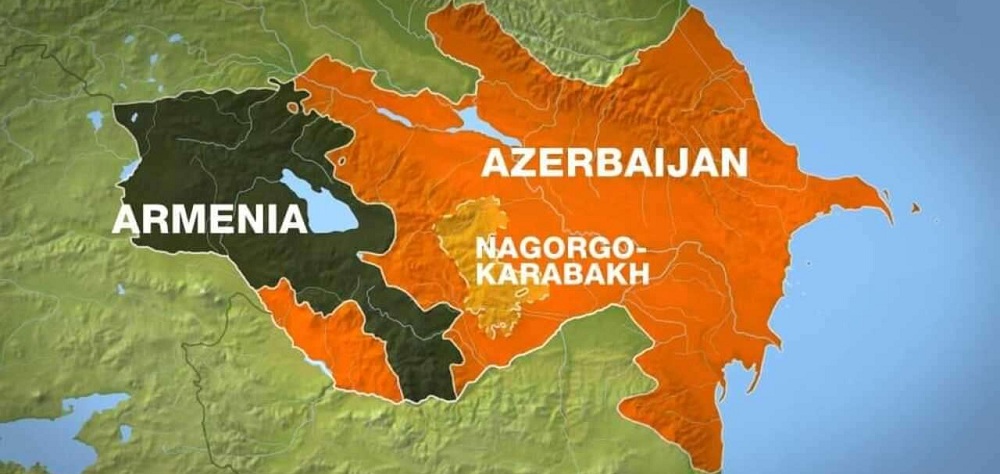Alwaght- A month ago, Director General for Eurasian Affairs of the Israeli Foreign Ministry Itzhak Carmel Kagan announced the opening of the Armenian embassy in Tel Aviv as the two sides set to expand their relations.
Following the statement, Armenia’s ambassador Armen Sabatian commented on why his country has not opened an embassy in the occupied territories earlier, saying “a host of problems existed in the past. But now through constructive talks, a chance has been created to settle these problems.”
Armenia and the Israeli regime established diplomatic relations in 1992 but opening the embassies was delayed for years, until last month that Armenian officially opened its embassy in Tel Aviv.
Since the moment the embassy was opened, the speculations began to flow that Yerevan and Tel Aviv will move in a path of deepening bilateral ties. However, very soon these speculations proved wrong.
Precisely, 10 days after the Armenian ambassador started work in Tel Aviv, Yerevan recalled him for consultations over the Israeli arms sales to Azerbaijan amid clashes between the two neighbors.
The Israeli military assistance to Azerbaijan prompted the fraying of tensions between Armenia and the Israeli regime.
Recalling the ambassador from Tel Aviv came on the heels of an unfolding war between Armenia and Azerbaijan in Karabakh, a disputed region separating the two countries. Yerevan accused Tel Aviv of assessing the Azerbaijani forces by weapons.
Regardless of the veracity of the claims about Israeli support to Azerbaijan in the ongoing war, what should be taken into account is that the Israelis can never be trustable allies to Armenia. The recent developments in the Karabakh region made this clear to the Armenian officials. In other words, the Israelis have shown that they are interested to intervene in Caucasus developments but their intervention is never in favor of Armenia.
Why are the Israelis seeking intervention in the Caucasus?
Various reasons drive the Israeli interest in meddling in the recent Caucasus and Karabakh tensions and clashes:
Concerns about US role vacuum and Turkish lead
Since the renewed clashes between Armenia and Azerbaijan on September 26, Israeli media and political and military experts asserted that Central Asia affairs remain highly important for Tel Aviv even after the last month normalization agreement between the Israeli regime and the UAE and then Bahrain.
The experts held that the reason behind the importance of the crisis in the Azerbaijan-Armenia relations for the Israeli regime is the US departure from playing a role in a region where Tel Aviv has interests or its developments are influential on it. The Israelis are seeking to counter an active role Turkey is playing in the Caucasus. This aim motivates them to meddle in the Karabakh crisis to create a toehold for Tel Aviv there.
According to the Israeli media, despite its relatively vast distance from South Caucasus, Tel Aviv regulates its role and performance in this region with regard to approaches adopted by other actors.
Iran’s long borders with Caucasian states
Iran’s sharing of long borders with Caucasus, particularly Azerbaijan and Armenia, is another important driver behind Israeli interest for intervention fresh Karabakh crisis. Rachel Avraham, a senior analyst at Safadi Center for International Diplomacy and Public Relations, in June in an article published by Israel Hayom newspaper wrote that Tel Aviv must closely watch the developments in the Caucasus because some states there, apparently Azerbaijan, can serve as “Israel’s eyes and ears” in Iran.
Earlier, Israeli officials several times expressed their unhappiness with friendly Iranian-Armenian relations. Many supporters of Israeli intervention in that region argue that Yerevan is in close cooperation with Iran which is the “staunchest enemy” to the Israeli regime.
Ambitious expansionist goals of Tel Aviv
There is a theory that suggests the Israelis have long-term expansionist ambitions in the form of setting up tourist settlements and resorts in some Central Asian states. This theory deserves attention with regard to some tourism advertising campaigns in Israeli media. Some Israeli companies have reportedly made vast land purchases in these countries and have constructed private residential districts and resorts, triggering fears about an Israeli scenario of “Palestinization” of Central Asia. The issue attracts more attention as in the past years, the Israelis in Africa have marked regions in Sudan for long-term seizure plans. This scheme supports a theory that Palestine-style settlements can next be established in the Caucasus and Africa and this plot is one of the main propelling forces behind Israeli intervention in the Caucasus.



























